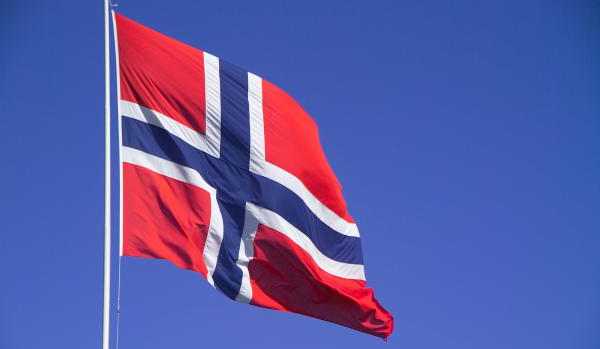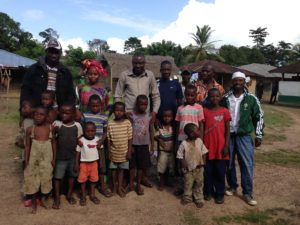In the Press | News & Blogs
Why Norway Should Lead a Global Fund for Legal Empowerment
This article was originally published in the Norwegian news outlet Aftenposten, on August 12, 2016. The Norwegian version can be read here.
Since World War II many countries have come to respect fundamental liberties, at least by the letter of the law. But for billions of people around the world those laws aren’t worth much.
Two years ago in Nimiyama Chiefdom in Eastern Sierra Leone, 70 families woke up to find poles erected on the land they have lived on and farmed for generations. It turns out a chief had sold 1400 acres to a Chinese rubber company, and no one had asked the families whose land it was.
That’s how a lot of people experience injustice around the world, whether it’s lead in the water in Flint, Michigan or denial of the basic rights of refugees. Injustice is a cold shock. An intrusion into the things we hold most dear.
The families knew that according to African customary law, what the chief did was not possible. Under customary law the land doesn’t just belong to those who are alive – it belongs to the ancestors that came before, and the descendants who are not yet born. The chiefs have a role as stewards of the land, but they can’t sell what isn’t theirs.
In addition to customary law Sierra Leone has formal, statutory laws, some of which were inherited from the British, and some of which have been adopted by the Sierra Leonean parliament.
The families in Nimiyama were told it was those formal laws, and the national quest for “development,” that made what the chief did not just possible but necessary. Blocked from entering their land, some of them moved to neighboring chiefdoms to find work as laborers. Some tried to stay and fight.
I had the privilege of living in Sierra Leone for four years, and I have seen firsthand how law can be spun like this into a cruel mystery, a ruse for oppression. I moved there in 2003, after the end of a brutal, eleven-year civil war. At that moment Sierra Leoneans agreed that unfairness and exploitation were a big part of why the war happened in the first place.
Human rights groups were keen to help people who faced injustice in their daily lives. But a conventional legal aid model would have been unworkable. There were 100 lawyers in the country, and more than 90 of those were in the capital Freetown. Instead we trained what we call community paralegals, or barefoot lawyers. These paralegals are a bridge between formal legal promises and real life. They educate people about law and policy, and help them pursue practical remedies to injustice.
That experiment after the war grew into a movement- today there are paralegals serving about 40% of the country. The families in Nimiyama found two of them, Hassan Sesay and Fatmata Kanu.
Hassan and Fatmata explained to these families that the formal law was actually on their side. At most the chief could have leased farmland, but even that would have required the consent of the families who have customary rights to it. The bill of sale the chief had signed and the eviction by the company were completely illegal.
With that knowledge the families and paralegals tried for a solution- they approached the chief and the company directly, and they engaged ministries of land and agriculture. Often those tools – organizing, negotiation, advocacy with administrative institutions – can generate results. We have found that well-equipped paralegals and their clients can squeeze justice out of even broken systems.
But this was one of the cases where frontline methods do not succeed. The firm and the chief were intransigent, and the ministries were unresponsive. So the families and paralegals partnered with a single Sierra Leonean lawyer, Sonkita Conteh, to bring a case in the high court.
In February, the high court ordered that the company return the land and pay reparations for the damage that was done. It’s planting season now, before the rains, and these families are back on their land, planting rice, cassava, cocoa, and cashew.
Paralegals across the country are educating people about the high court judgment and working to stop land grabs before they happen. Fanta Nyanda, one of the women whose land it was, said to us at the courthouse the day the judgment came out: “we now know the law is for us.”
That’s the transformation we need, not just in Sierra Leone, but everywhere. Let the law be for all of us.
Norway has a history of standing up for this principle on the world stage. Norway led the creation of the UN Commission on Legal Empowerment in 2008. Last year, Norway successfully advocated for the incorporation of “access to justice” in the new Sustainable Development Goals—something that had been left out entirely from the original Millennium Development Goals adopted in 2000.
Legal empowerment renders governments more accountable to their citizens and makes economic development more equitable. But many governments are wary of giving civil society groups the space, recognition, and financing they need because legal empowerment efforts constrain state power. Compared with other global public goods like healthcare, legal empowerment is severely under-financed.
It takes a mature and democratic government to invest in holding itself accountable. Norway exemplifies that maturity.
Norway can help break through the narrow thinking of some governments by leading a Global Fund for Legal Empowerment. The fund would support the work of barefoot lawyers around the world, as well as research to evaluate impact and identify successful innovations.
This would represent multi-lateral cooperation on a problem that affects all of us.
We humans won’t overcome any of the great challenges we face— protecting the environment, ensuring a fair and flourishing economy, securing basic liberties– if our laws and systems only work for the most powerful.
The law needs to be something that every one of us can understand, use, and shape. Norway can help make it so.


